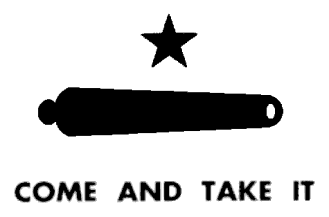
Posted on 06/12/2009 3:45:09 PM PDT by DrewsDad
Texas Attorney General Greg Abbott, charging that General Motors is attempting to use its bankruptcy to violate state law governing dealerships, announced this afternoon that he is challenging the troubled automaker’s proposed restructuring in court.
In a filing with the U.S. Bankruptcy Court for the Southern District of New York, Abbott alleges that new franchise agreements that GM is requiring Texas’ 415 GM dealers to sign violate state law.
By requiring its dealers to market only GM brands.
By forcing its dealers to order new GM vehicles, even the models a dealer does not believe will sell.
By limiting its dealers’ warranty claims.
By allowing GM to modify or terminate franchise agreements, in violation of current law.
“GM is putting dealerships across Texas — and thousands of their employees — at risk,” Abbott said. In an unprecedented move, GM — which will majority owned by the federal government — claims that states’ rights and states’ laws that protect dealerships can be ignored at GM’s choosing. In doing do, the federally owned GM guts Texas statutes that regulate car dealers and flaunts U.S. Supreme Court precedent that upholds our state-based dealership structure.”
(Excerpt) Read more at statesman.com ...
Texas, again, doing the right thing.
http://www.oag.state.tx.us/
Abbott said GM is requiring its dealers in Texas and other states to sign the new franchise agreements “if they want to be a part of the New GM operation.”A great big BUMP for state rights over federal decree. Go Texas and Louisiana!
“The new agreements, however, amount to take-it-or-leave-it ultimatums that force current dealers to waive state laws that were enacted to protect businesses from those very kinds of oppressive moves. If dealers don’t sign the contract, they will lose their business.”
Abbott said the State of Louisiana also is challenging the franchise revisions, telling GM in a latter that “GM will not be allowed to market cars in Louisiana unless it follows state law” there.
The question is who in their right mind would want to sell Government Motors Trash!!!
I hope Georgia follows.
I hope they fair better than Indiana v. Chrysler.
Abbott’s generally on the right side of things. Good call on this one.
“fare” even.

Go Texas!
How similiar was that case?
I am so UNfamiliar with the case, I do not even know the proper parties.
Thank God there are still some rigid spines in this state, and God Bless Texas!

Hope Texas is more successful than Indiana was.
If Obama has a hissy fit, tell him to

Ping.
Under the “new” contract GM will be “requiring its dealers to market only GM brands.”
Texas Ping.
Troy A. Clarke
Group Vice President
President, GM North America
General Motors Corporation
Dear Mr. Clarke,
I am in receipt of your recent letter (undated). Thanks for taking the time to write to encourage me to buy another GM product.
As a red-blooded American, I would always consider a GM car above others. However, my next car will not be a GM car. I cite four reasons:
1. I will have nothing to do with a government owned company.
2. I will have nothing to do with a company that will not stand up to the unions. While I believe labor unions have a place in our society, it seems that everyone in the world knows what happened to GM—except GM management. You could have saved the company by going into a traditional Chapter 11, forced a 50% pay cut on union members (or shut them out altogether by moving your operations to a right-to-work state). This whole bailout deal is as clear as it can be—a political pay back by President Obama to the unions.
3. Your government-backed solution thumbed your nose at the bond holders, and thus the rule of law in this country. So much for my support of America as we once knew it.
4. There is no way that GM will survive, because too many people feel the same way I do.
Sincerely,
Charles Meek
Disclaimer: Opinions posted on Free Republic are those of the individual posters and do not necessarily represent the opinion of Free Republic or its management. All materials posted herein are protected by copyright law and the exemption for fair use of copyrighted works.